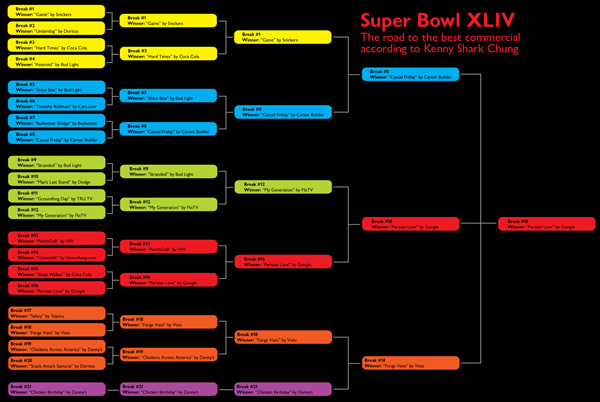The following notes are from the presentation titled “For Good Measure: Brand Measurement in a Digital World” at SES NY from Wednesday, March 27, 2013.
Note that these are just my notes, and I am not necessarily endorsing any strategies, tactics or POVs stated therein.
Dollar shift from TV to in-stream not happening because lack of ROI proof. #sesny #brandmeasurement
— Kenny Chung (@kennySHARKchung) March 27, 2013
TV planning/measurement is simple & predictive. Online has too many metrics to choose from. #sesny #brandmeasurement
— Kenny Chung (@kennySHARKchung) March 27, 2013
Digital should be interactive. Track different metrics at different points of consumer journey. #sesny #brandmeasurement
— Kenny Chung (@kennySHARKchung) March 27, 2013
Ads can be interactive without providing impact. CTA's add dimensions to branding. #sesny #brandmeasurement
— Kenny Chung (@kennySHARKchung) March 27, 2013
Branding is not an objective. Affecting brand perception/engagement is. #sesny #brandmeasurement
— Kenny Chung (@kennySHARKchung) March 27, 2013
Paid media + website metrics + earned media metrics = Digital consumer experience #sesny #brandmeasurement
— Kenny Chung (@kennySHARKchung) March 27, 2013
Having isolated digital initiatives make it hard to see holistic brand performance/trends. #sesny #brandmeasurement
— Kenny Chung (@kennySHARKchung) March 27, 2013
Look for metric correlation instead of single causes. #sesny #brandmeasurement
— Kenny Chung (@kennySHARKchung) March 27, 2013
40% of time spent on Facebook is within the News feed. #sesny #brandmeasurement
— Kenny Chung (@kennySHARKchung) March 27, 2013
People spend more time with online videos than on Facebook. #sesny #brandmeasurement
— Kenny Chung (@kennySHARKchung) March 27, 2013
People spend more time socializing on their mobile devices than eating. #sesny #brandmeasurement
— Kenny Chung (@kennySHARKchung) March 27, 2013
Promoting within the Facebook News feed is great for amplification but you have to pay to play. #sesny #brandmeasurement
— Kenny Chung (@kennySHARKchung) March 27, 2013
Average clickthrough rate on Facebook ads is 1% (10x better than other display ads). #sesny #brandmeasurement
— Kenny Chung (@kennySHARKchung) March 27, 2013
Linear sales funnels are a myth. This makes attribution even harder. #sesny #brandmeasurement
— Kenny Chung (@kennySHARKchung) March 27, 2013
Last click attribution undervalues Facebook ads. Use a multi-channel attribution model that weights more accurately #sesny #brandmeasurement
— Kenny Chung (@kennySHARKchung) March 27, 2013
Map business objectives to social media KPIs. Think organizationally re: social strategy to make brand engaging. #sesny #brandmeasurement
— Kenny Chung (@kennySHARKchung) March 27, 2013


